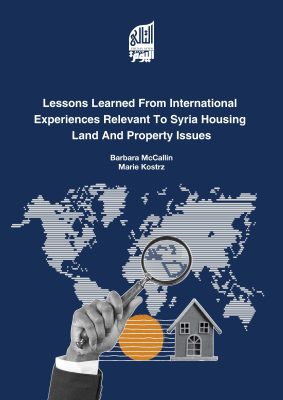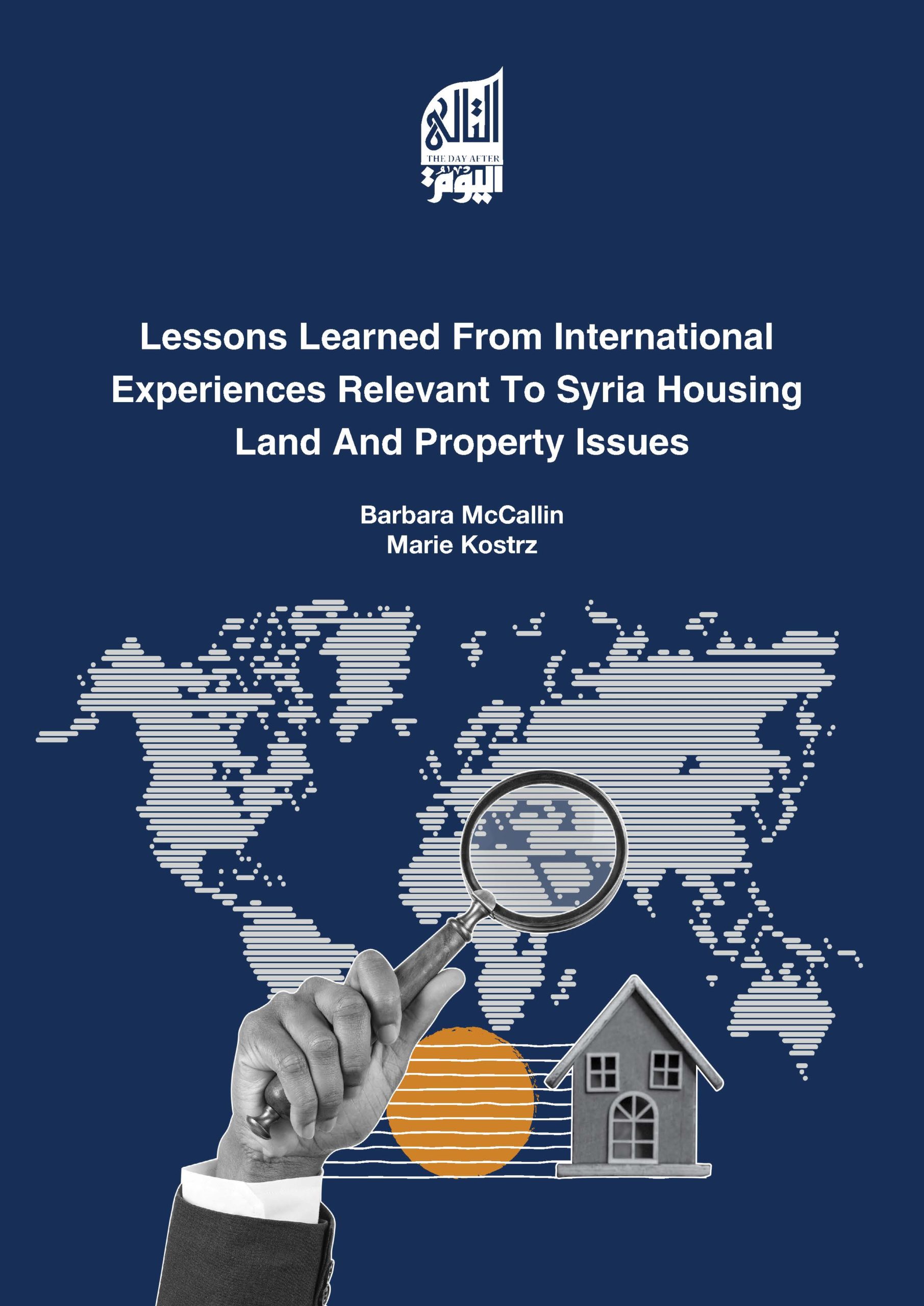
Date: March 2022
Violations of housing, land, and property (HLP) are typical features of conflict and forced displacement situations. While each context has some unique characteristics, experience from other countries can help to identify lessons learned, and key principles of action that apply in most contexts. Since the 1990s there has been a growing acknowledgement by the international community of the necessity to address conflict related HLP issues to support the right to return, durable solutions to displacement, economic recovery, development and peacebuilding. This has been reflected in the policy discourse, UN guidance on international HLP standards, and the inclusion of HLP provisions in numerous peace agreements.
The purpose of this research is to identify lessons learned from international experiences that could inform the design and implementation of solutions to address the numerous HLP issues faced by Syrians since the conflict.
Like in Syria, most conflicts are characterised by massive human rights violations and the absence of the rule of law, leading to impunity. The use of legislation to dispossess opponents or prevent the return of displaced people is also a frequent occurrence. Restoring peace and confidence in institutions in the post-conflict period usually requires a political settlement, a peace agreement or transitional justice processes to address the legacy of the war as well as pre-conflict issues.
This report presents the key principles that should guide the inclusion of HLP issues into peace agreements and transitional justice processes; and the type of dispute resolution mechanisms and procedures that have been put in place in different contexts to remedy wartime HLP violations and sometimes pre-conflict ones. The report then presents how a range of typical issues have been addressed by international practice linking it to the Syria situation.
Lessons learned from international experience highlight the necessity to adopt a comprehensive approach to cover the multiple dimensions of HLP as a key component of return, remedy to dispossession and forced displacement, peace, economic recovery, and development. A comprehensive approach combines a mix of reparative and transformative actions.
Reparative actions include measures like the creation of an HLP dispute resolution mechanism to address the effects of the conflict, through restitution and compensation. But it may also be necessary to address pre-conflict HLP issues when the legal and institutional framework facilitated discrimination, unequal access to land and housing or tenure insecurity.
